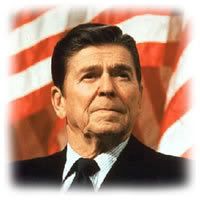Post by MARIO on Dec 27, 2005 22:42:04 GMT -8
Do we deserve it?
By Walter E. Williams
Dec 28, 2005
Philosopher David Hume warned that, "It is seldom that liberty of any kind is lost all at once." That's why we should guard against any encroachment on liberty, no matter how small. Let's look at a couple of instances where, at our peril, we've failed to do so.
The Christmas season reminds many Americans of the attack on religion. A number of stores have caved in to pressures to ban Christmas celebrations, greetings and symbols, among them: Target, Home Depot, Wal-Mart, Kmart, Sears, Costco, Kohl's, Barnes & Noble, Toys 'R' Us, and Walgreens. Cities have banned nativity scenes. Some schools have banned the singing of Christmas carols.
Much of the attack on religion had its birth with the 1963 Supreme Court decision in Murray vs. Curlett, which banned organized school prayers. For a moment, let's ignore the debate on whether that decision was right or wrong and instead focus on tactics. Suppose, in 1963, America's atheists had revealed and demanded their complete agenda: elimination of religious Christmas symbols in public places, elimination of the words "under God" in our Pledge of Allegiance, elimination of "In God We Trust" from our currency and elimination of caroling in public schools. There would have been so much resistance that they wouldn't have achieved any of their agenda, including the ban on prayers in school. Given our weak resistance, you can bet the day will come when the attack on religion will include demands that crosses be removed from Arlington and Normandy cemeteries and bans on religious television or radio broadcasts.
While many Americans are disturbed by the ongoing attack on religion, they applauded the identical strategy when it was the attack on cigarette smokers. In the 1960s, when the anti-tobacco zealots started out, they only demanded "reasonable" things like no smoking sections on airplanes. Suppose they started out revealing their complete agenda: no smoking in airports, restaurants, places of employment and parks, confiscatory taxes on tobacco products, and multibillion-dollar suits against tobacco companies. There would have been so much resistance that the anti-tobacco zealots wouldn't have succeeded with no smoking sections on airplanes.
READ THE REST:
www.townhall.com/print/print_story.php?sid=180367&loc=/opinion/columns/walterwilliams/2005/12/28/180367.html
By Walter E. Williams
Dec 28, 2005
Philosopher David Hume warned that, "It is seldom that liberty of any kind is lost all at once." That's why we should guard against any encroachment on liberty, no matter how small. Let's look at a couple of instances where, at our peril, we've failed to do so.
The Christmas season reminds many Americans of the attack on religion. A number of stores have caved in to pressures to ban Christmas celebrations, greetings and symbols, among them: Target, Home Depot, Wal-Mart, Kmart, Sears, Costco, Kohl's, Barnes & Noble, Toys 'R' Us, and Walgreens. Cities have banned nativity scenes. Some schools have banned the singing of Christmas carols.
Much of the attack on religion had its birth with the 1963 Supreme Court decision in Murray vs. Curlett, which banned organized school prayers. For a moment, let's ignore the debate on whether that decision was right or wrong and instead focus on tactics. Suppose, in 1963, America's atheists had revealed and demanded their complete agenda: elimination of religious Christmas symbols in public places, elimination of the words "under God" in our Pledge of Allegiance, elimination of "In God We Trust" from our currency and elimination of caroling in public schools. There would have been so much resistance that they wouldn't have achieved any of their agenda, including the ban on prayers in school. Given our weak resistance, you can bet the day will come when the attack on religion will include demands that crosses be removed from Arlington and Normandy cemeteries and bans on religious television or radio broadcasts.
While many Americans are disturbed by the ongoing attack on religion, they applauded the identical strategy when it was the attack on cigarette smokers. In the 1960s, when the anti-tobacco zealots started out, they only demanded "reasonable" things like no smoking sections on airplanes. Suppose they started out revealing their complete agenda: no smoking in airports, restaurants, places of employment and parks, confiscatory taxes on tobacco products, and multibillion-dollar suits against tobacco companies. There would have been so much resistance that the anti-tobacco zealots wouldn't have succeeded with no smoking sections on airplanes.
READ THE REST:
www.townhall.com/print/print_story.php?sid=180367&loc=/opinion/columns/walterwilliams/2005/12/28/180367.html






